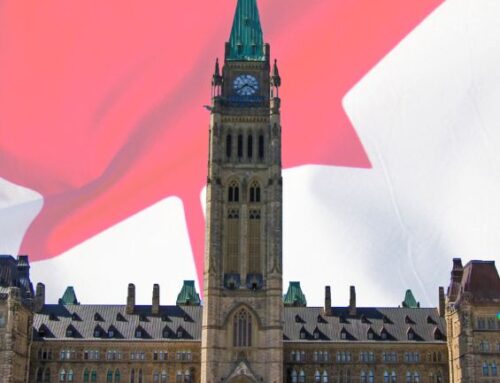 After eight seasons, 73 episodes, 47 primetime Emmy awards, and a massive audience that guarantees it a place in pop culture history, Game of Thronesended last month with a half dozen episodes that left fans distraught, angry, or both.
After eight seasons, 73 episodes, 47 primetime Emmy awards, and a massive audience that guarantees it a place in pop culture history, Game of Thronesended last month with a half dozen episodes that left fans distraught, angry, or both.
Before the final episode aired, an online petition from fans demanding that the eighth and last season be rebooted and rewritten gained a million signatures. The show runners, David Benioff and Daniel Weiss, were once applauded for their creative genius in making a fantasy costume drama about dragons and zombies reach an audience far larger than just nerds and comic con attendees. But halfway through the final season they were being attacked viciously for ruining not just the show, but the still-unpublished books in author George R.R. Martin’s series which inspired the HBO hit.
None of this is surprising. Game of Throneshas taken much of its audience from its teens and into its 20s, from college to careers, and provided them with online social lives and communities built around fan fiction, script leaks, memes, and reaction videos. Any entertainment that attracts this passionate, enthusiastic and intemperate demographic is bound to disappoint.
I wrote about the show not long after I started this column, just after the first season aired. I found it fascinating then, and still do, which probably gives some idea of just how it attracted an audience much larger than its core fanboy base – growing from just over two million U.S. viewers during that first season to nearly 14 million by the finale. This doesn’t include its international audience, of course, or the millions that watched it through illegal downloads. (In 2017 the show was reported to have been pirated over 90 million times.)
In 2011, I described Game of Thronesas a “Medieval ‘what if?’ story, set in a super-sized England founded on the speculative premise that Christianity never happened. While Westeros abounds in a panoply of fanciful pagan faiths, there’s no half-life of ghostly Roman glory in the past, no abiding Papal authority in whatever state of grace or disarray, no legacy of saints and proselytizing martyrs, no shared Biblical canon of parable, psalm or proverb, and no Christ to act as exemplar or ideal.
“It’s as if the Dark Ages stretched back into the mists of history, and looks set to persist for centuries to come, with no Reformation, Renaissance or Enlightenment, blood and conflict ebbing and flowing as political power, a means only to its own end, shifts from one kingly alliance to another.”
Eight years ago, I perceived the world of Game of Thronesas one without hope – described generically as a fantasy, but which felt “more like a nightmare.” If I have kept watching since then, it’s because the show has continued to reward me with its exploration of this bleak alternate history, occasionally reflecting our own in its dim, bloodstained glass.
The final season set up a bleak denouement: the apparently unkillable zombie army, considered the great enemy for so many seasons, was defeated at the last minute of an epic battle with a single thrust of a blade. Viewers thought it a bit too easy after all the build-up, but they reacted even more fiercely when the show’s heroine subsequently turned into a genocidal tyrant in just a couple of episodes. (Never mind that this transformation had been teased, predicted and foregrounded for years – those who didn’t protest it as a betrayal of the character criticized it for being simply too abrupt.)
Despite the angry firestorm on social media and the petition, viewers still tuned in to the finale in record numbers. They were rewarded with a dark, smoke-filled, somber episode full of long scenes of dialogue, as the characters who remained alive at the end tried to make sense of what choices they had left in the face of error, tragedy, and tyranny. No characters sang their lines, but the mood was definitely operatic, albeit more Wagner than Puccini.
The heroine stood in the middle of the city she’d burned to the ground, after her soldiers had slaughtered the last surrendering enemy soldiers. She proclaimed to her ranks of troops that their war would not, in fact, end there, but would continue, till she had “freed” the rest of the world. Her soldiers stood in long lines, her flag was black and red; it was all very Leni Riefenstahl.
The hero, who had denied his own (superior) claim to the throne and muted his objections to her increasingly bloody whims, was appalled and confused. The heroine imprisoned one of the show’s most popular, sympathetic characters when he finally gave in to his own misgivings, after watching her incinerate a city full of women and children from the back of a dragon, resigning as her council publicly, in disgust.
Eight seasons of dense, bloody, character-choked plot turn on a single scene in a dark room, where the hero meets with the ex-councilor before his apparently imminent execution. They talk about the difference between the choices made by people on the ground, far from power, and the choices made by the powerful that can end those people’s lives in minutes, and in wholesale numbers. And then the conversation takes an interesting turn.
The councilor recalls how the heroine had been cheered when she had slaughtered people considered evil – slavers and slave owners, the leaders and soldiers of the armies that opposed her. “Everywhere she goes, evil men die and we cheer her for it,” he says. Sure he’s talking about the heroine’s allies in the show, but also about the audience that had, for seven and a half seasons, longed for the heroine to triumph over her enemies in just this way.
The most depressing thing I read in the final weeks of Game of Throneswas how parents had named their daughters after the character, and were suddenly defensive about that choice when the heroine turned tyrant. Even U.S. senator and Democratic presidential hopeful Elizabeth Warren was forced to publicly backtrack on her public expression of fandom for the character: “Oh, I am so blue about Daenerys,” said Warren at a campaign stop in New Hampshire. “You know, what can I say?”
“She grows more powerful and more sure that she is good and right,” the councilor tells the hero. “She believes her destiny is to build a better world – for everyone. If you believed that, if you truly believed that, wouldn’t you kill whoever stood between you and paradise?”
When justifying the slaughter of innocents today, the heroine proclaims that she is making the world safe for future generations. As a terrifying conceit, this is one that those on the pro-life side have to contemplate every day. How will unborn generations enjoy any better world tomorrow when they’re denied the choice to enjoy it today? But I digress.
Small mercies will not hasten the better world the heroine imagines herself destined to create. Finally confronted by her frightening will to power, the hero stabs the heroine in the heart. Her dragon arrives to mourn her and, poised apparently to incinerate the hero, he turns his flames on the ugly throne that gave the series its title, and motivated every terrible event over the previous eight seasons.
The throne melts into slag, the dragon picks up the heroine’s body and flies away. Magic, which entered the world of the show with dragons and armies of ice zombies, exits. The last few scenes tidy up the destinies of the remaining characters: a new king is elected; the hero is sent into exile, the councilor becomes councilor again, and the new government sets about the dull and potentially corruptible tasks of building ships, sewers and brothels. You can’t imagine that the characters left standing at the end of it all aren’t grateful that the world has become blissfully mundane again, and that the heroes have been either carried away or retired.




